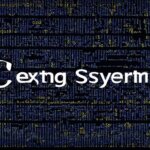Table of Contents
Object-Oriented Programming (OOP) has become an essential paradigm in modern software development. It enhances code structure, promotes reusability, and enables developers to create more efficient and maintainable software systems. In this section, we will delve into the fundamental concepts of OOP programming and its significance in software development.
To understand the importance of OOP programming, we must first define what it is. Put simply, OOP is a programming model that utilizes objects and classes to structure code. This approach emphasizes the creation of reusable code components and encourages the use of modular designs. This makes code more efficient, easier to maintain, and less prone to errors.
Key Takeaways:
- OOP programming enhances code structure and promotes reusability.
- It emphasizes the creation of reusable code components and encourages modular designs.
- OOP makes code more efficient, easier to maintain, and less prone to errors.
- Classes, objects, inheritance, encapsulation, and polymorphism are core concepts of OOP programming.
- Understanding OOP programming is essential in modern software development practices.
What is OOP Programming?
Object-Oriented Programming (OOP) is a programming paradigm in which code is organized around objects that interact with each other. In OOP Programming, objects are instances of classes, which are user-defined data types that encapsulate data and methods. By utilizing OOP programming, developers can create code that is modular, reusable, and easy to maintain over time.
Core Concepts of OOP Programming
There are several core concepts in OOP programming that developers must understand to fully utilize the principles of OOP. These concepts include:
- Classes: A user-defined data type that encapsulates data and methods.
- Objects: Instances of classes that represent specific instances of data.
- Inheritance: The capability of a class to inherit properties and methods from a parent class.
- Encapsulation: The characteristic of a class to keep its data private from other classes.
- Polymorphism: The capacity of a class to take on multiple forms or behaviors.
By incorporating these concepts into code development, developers can build comprehensive software programs that are easy to navigate and maintain.
The Importance of OOP Programming
OOP Programming has become a crucial aspect of software development, as it allows developers to create code that is more flexible and modular. OOP’s inherent readability and maintainability make it attractive to both developers and end-users. By using OOP, developers can more easily modify and update previously written code, which can lead to cost savings over time. Additionally, the code’s object-centric approach leads to a better understanding of how different components of a software system are related to each other, making troubleshooting and debugging more manageable.
Overall, OOP Programming provides a logical and efficient approach to software development that results in more cohesive, sustainable, and scalable projects.
Benefits of OOP Programming
Object-Oriented Programming (OOP) offers many advantages and benefits for software development.
| Benefits | Description |
|---|---|
| Code Reusability | OOP allows for easy reuse of code through inheritance and polymorphism, reducing development time and effort. |
| Modularity | OOP promotes code modularity by breaking down complex systems into smaller, manageable modules, making it easier to test and debug code. |
| Scalability | OOP provides a scalable approach to software development, enabling developers to add new functionalities without affecting the existing codebase. |
| Code Maintenance | With OOP’s emphasis on code structure, maintenance becomes simpler and more efficient, as changing one class does not affect the entire system. |
| Code Readability | OOP enhances code readability by providing clear and well-defined class structures and interfaces, making it easier for developers to understand code functionality. |
| Adaptability | OOP facilitates adaptability, enabling developers to modify code to meet new requirements without changing the core functionality of the existing codebase. |
By leveraging these benefits, developers can streamline their development process and create more efficient, maintainable, and scalable software solutions.
The Importance of OOP in Modern Software Development
OOP programming is an essential aspect of modern software development practices. With its emphasis on code structure, reusability, and scalability, OOP equips developers with the tools needed to create robust software solutions that meet the demands of our ever-changing digital landscape.
Conclusion
Object-Oriented Programming (OOP) is a fundamental aspect of software development that enhances code structure, promotes reusability, and leads to more efficient and maintainable software systems. By understanding the core concepts of OOP, such as classes, objects, inheritance, encapsulation, and polymorphism, developers can streamline their codebase and improve efficiency in their software development projects.
Utilizing OOP programming in software development has several advantages and benefits. OOP promotes code reusability, modularity, and scalability. It also enhances code maintenance, readability, and adaptability, making it a preferred paradigm in modern software development practices.
As a software developer, understanding the essence of OOP programming and leveraging its benefits is crucial. By adopting its principles, developers can create robust software solutions that are scalable and maintainable. With its emphasis on code structure and reusability, OOP programming remains an integral part of software development for building scalable and maintainable applications.
Thus, incorporating OOP programming in software development projects can streamline the development process, improve efficiency, and create better software systems.
FAQ
What is Object-Oriented Programming (OOP)?
Object-Oriented Programming (OOP) is a programming paradigm that structures software development around objects, which are instances of classes. It emphasizes the concepts of encapsulation, inheritance, polymorphism, and abstraction to create modular and reusable code.
What are the core concepts of OOP?
The core concepts of Object-Oriented Programming include classes, which are blueprints for creating objects; objects, which are instances of classes; inheritance, which allows classes to inherit properties and methods from other classes; encapsulation, which protects data by restricting access to it; and polymorphism, which allows objects of different classes to be treated as objects of a common parent class.
What are the benefits of using OOP programming?
OOP programming offers numerous benefits in software development. It promotes code reusability, allowing developers to write modular and maintainable code. OOP also enhances code readability and maintainability, making it easier to understand and update. Additionally, OOP enables better code organization and scalability, as well as improved collaboration in larger development teams.
How does OOP programming enhance code reusability?
OOP programming enhances code reusability by allowing developers to define classes and create objects that can be reused in different parts of the program or in other programs. By encapsulating functionality within classes, developers can easily reuse and extend code, saving time and effort in software development.
Is OOP programming suitable for all types of software development projects?
While Object-Oriented Programming (OOP) is widely used and highly beneficial, it may not be suitable for all types of projects. OOP is particularly advantageous for large-scale projects and applications that require modularity, maintainability, and code reusability. For smaller projects or those with specific performance requirements, alternative programming paradigms may be more appropriate.







